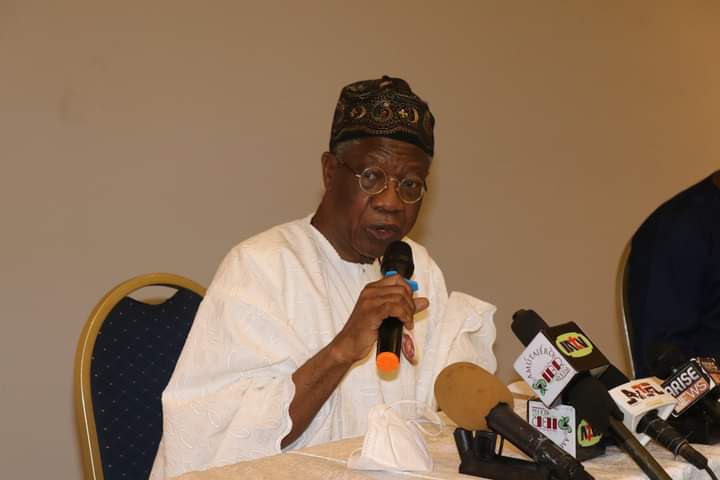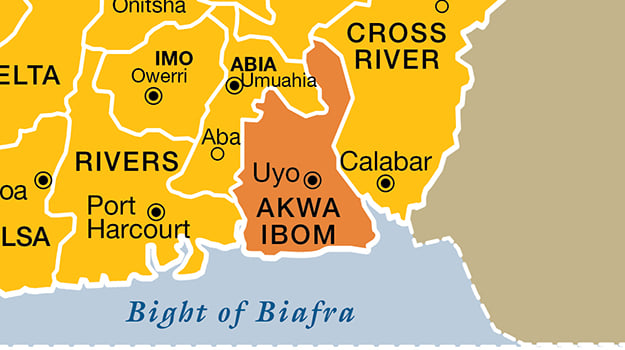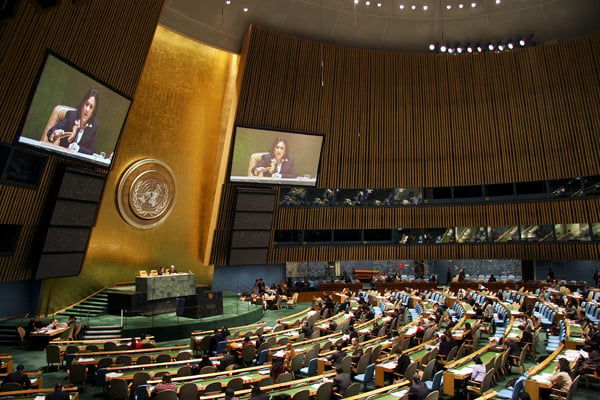Last week, as Minister of Information and Orientation, Alhaji Lai Mohammed, was engrossed in his theatrics on television over the Lagos EndSARS panel report; I was wrapped in sobriety as I listened to Manchester-based UK pop group of artists called the Hollies. Renowned for being one of Britain’s leading musical groups of the 1960s and into the mid 1970s, especially with their unique and distinctive blend of a three-part vocal harmony style, Hollies’ renown got catapulted to the zenith through their highly evocative song entitled He Ain’t Heavy, He’s My Brother.
The song was composed by Bobby Scott and Bob Russell. Russell, born April, 1914, was an American songwriter and lyricist who died of lymphoma in Beverly Hills, in 1970, shortly after the song was released in 1969. With Elton John in the background fiddling with the piano and Alan Clarke, the lead vocalist tugging the base of the world’s empathy, the Hollies badgered the world to care for the other person, with their lyrics piercing into the global subconscious. For their superlative performance all through the ages, the Hollies were inducted into the Rock and Roll Hall of Fame in 2010.
He Ain’t Heavy, He’s My Brother has a multiplicity of themes, ranging from human rights, trials and tribulations, human empathy and sobriety at the sight of a dying fellow man. Among others, the track goes thus: The road is long//With many a winding turn//That leads us to who knows where//Who knows where//But I’m strong//Strong enough to carry him//He ain’t heavy, he’s my brother//So, on we go//His welfare is of my concern//No burden is he to bear//We’ll get there//For I know//He would not encumber me//He ain’t heavy, he’s my brother//If I’m laden at all//I’m laden with sadness//That everyone’s heart//Isn’t filled with the gladness//Of love for one another//It’s a long, long road//From which there is no return//While we’re on the way to there…
He Ain’t Heavy, He’s My Brother was borne out of the pain and anguish, as well as the camaraderie felt by soldiers who fought in the Vietnam War. In wars, soldiers saw their fellow brothers shot and bleeding. At that point, they had two choices: flee for dear life or stay back to carry them on the shoulder to safety, preparatory to a first aid being administered on them. The song is the narrative of an emotionally or physically stronger person, who without complaints provides succor to a traumatized other, either a countryman in distress, in pain or discomfort. The one who is down is at the end of their tethers, without the will to continue on the journey. Hollies lament that our emotive composition as human beings is not balanced as not everyone is ready to offer comfort to the broken hearted. This, the Hollies represented, inter alia, thus: “If I’m laden at all, I’m laden with sadness, that everyone’s heart is filled with a gladness of love for one another.”
Again, listening to Mohammed waffling as he read from his prepared speech, my mind flipped over to Chief Tom Ikimi, Nigeria’s notorious military despot, Sani Abacha’s Minister of Foreign Affairs. Like Mohammed, Ikimi’s heart was made of tar and coal, cold without life. He shawled Abacha with a duvet of beatitudes reserved only for angels. In Auckland, New Zealand in 1995, while the blood of environmental rights activist, Ken Saro-Wiwa, was yet hot as he jerked for the last of his breath in the hands of Abacha’s hangmen, Ikimi sought to place Abacha among the pantheon of the gods. Saro-Wiwa, he told the world, was a devil reincarnate. As the world is horrified that State apparatus could be deployed to murder peacefully protesting youths, the world was equally aghast in 1995 that Buhari could judicially murder Saro-Wiwa, even when Abacha, in a 1994 meeting with Late South African President Nelson Mandela in Abuja, had promised Madiba, conveyed to him through General Oladipo Diya, that even if the kangaroo judicial panel found him guilty, he would extend the prerogative of mercy to the Ogoni-born activist.
Advertisement
With peacock pomposity jutting out of his octopus stature, Ikimi stood on television beamed live to Nigerians and the international community, to criminalize the hanged activist. Today, Ikimi, architect and politician, is a victim of history, tossed inside the trash receptacle of the time. While I am not privy to how the blood of Saro-Wiwa may be tormenting him today, 26 years after, I am convinced that even when he must have departed this earthly space, his progenies will feel the heat of that nestling shoulder he gave despotism to fester in our land.
The first impression you get from Lai Mohammed at that press conference ground is a man who took unqualified pleasure in gloating at the dead. Unlike the Hollies’ soldier who offered comfort to the wounded, Lai Mohammed mocked the blood that was spilled at the Lekki Toll Gate and like Ikimi, gave a wooly embrace to murderers cloaked in the gabardine of the Nigerian state. Rather than the panel report, Mohammed and those who authored the speech he read stand condemned forever for tormenting the memories of the people who the system they work for, killed. It is disheartening that officials of the Nigerian state, unlike that imaginary valiant soldier in the Hollies’ song, do not stand by the tax payers who pay for the untrammeled comfort and wealth they scoop from the Nigerian state. Like a blood-overfed bed bug that they are, these officials luster in their wickedness.
Mohammed was just the federal government version of other legmen earlier sent out by a combination of the federal and Lagos State governments, with the instruction to water the ground preparatory to a White Paper that is diametrically opposed to the recommendations of the panel. Mohammed and his earlier lackeys dwelt extensively and incongruously on supposed technical errors in the report but which, in the main, do not detract from the gravamen of the report.
Advertisement
What is key is the role played on that grisly night by men of the Nigerian Army, whose presence at the Toll Gate on that day is no longer a matter for conjecture. Lagos State governor, Babajide Sanwo-Olu himself had confirmed that he extended invitation to them. Incontrovertible footages obtained that night and thereafter also confirmed that the soldiers were there. Initially, there was an attempt to Unknown Soldier-ise the bloodthirsty detachment sent to the Toll Gate that night, until Sanwo-Olu, perhaps hastily but in defence of hapless Nigerian youths felled in the melee, confirmed that the soldiers were not ghosts and he called for their presence. The buck-passing, from the then Chief of Army Staff, Tukur Buratai, down to the Lagos military command, confirmed this attempt to dissolve the culprits into the inky night.
Now, granted that the forensic analyst who examined the bullets found at the locus in quo claimed that the bullets were not military-grade (high-velocity) live ammunition because, in the words of Lai, “had the military personnel deliberately fired directly at the protesters; there would have been significantly more fatalities and catastrophic injuries recorded,” the question then is, who fired the shots that killed that night? Could the soldiers, aware of the havoc they were coming to perpetrate, have armed themselves with non-military rifles? Because, if the soldiers didn’t kill those who, even by government’s admission, were killed, who and what then killed them?
Again, even from the angle of Lai Mohammed’s “credible evidence” of the Forensic Pathologist, Prof. John Obafunwa, to wit that “only three of the bodies on which post mortem were conducted were from Lekki and only one had gunshot injury,” we will like to know, was it blank bullets that killed these two victims? This gives the probability that most of the victims who were killed were the human casualty evidence reportedly whisked away by the soldiers and whose bodies may never be seen again.
You will agree with me that Nigerians are totally hemmed in, in the hands of their rulers who peremptorily bring out all manner of subterfuge, lies and deceits in the administration of the space called Nigeria. The soldiers claimed to have shot blank cartridges. How many of those spent cartridge were found the second day, especially when the panel members paid their maiden visit to the locus in quo? With reported frenetic attempt made by government to muffle evidence by deploying those who mopped off blood the second day and with soldiers reportedly carting away human casualty evidence, there was the probability that the bulk of evidence that would have showcased the Nigerian state’s guilt of massacre must have been washed or whisked away.
Advertisement
This is why Lai Mohammed’s incredulity at the panel’s submission is itself incredulous. He was aghast at the panel’s claim that trucks with brushes underneath were whisked to the Lekki Toll Gate “in the morning of Oct. 21 2020 to clean up bloodstains and other evidence, but still found bullet casings at the same site when it visited on October 20, 2020.” To me, it is infantile to reason that though “soldiers picked up bullet casings from Lekki Toll Gate on the night of October 20, 2020,” yet submit that there could not have been evidence of bullet casings found at the same locus in quo on October 21, 2020. This is because, if found to be true that the state attempted to tamper with evidence, it must have been done in a hurry before dawn on October 21, 2020, in the process of which there was the probability that, like every murderer in a crime scene, no matter how small it may be and regardless of how smart they may think they are, they always leave even if a scintilla of lead for investigators.
As to Lai Mohammed’s bother that some names of casualties appended to the report by the panel bore no surname and many family members have not come forward to identify their killed members in the Lekki Toll Gate disaster, for anyone who lives in Nigeria raising such disagreement, the person is either being mischievous or full of grisly dis-ingenuity. The Minister had said that “the panel was silent on the family members of those reportedly killed, merely insinuating they were afraid to testify. Even goats have owners who will look for them if they do not return home, not to talk of human beings. Where are the family members?”
The truth is that, governments after governments have reduced Nigerians to mere pieces of wood, worse than Mohammed’s goat allusion. Our identity as human beings has been dehumanized. Till today, I am sure many dead in the Ikoyi 21-storey building collapse are yet to be identified or names put to them. This is because we and our governments in particular, are a people who disdain statistics and data. There are hundreds of people who live in Lagos today whose families do not know their whereabouts. That they might have strayed into the Lekki Toll Gate incident is not unlikely. For Lai Mohammed to now make an issue of this is the highest form of official gerrymandering.
The Minister’s wonder why the panel’s report did not cover cases of police personnel brutally murdered or “the massive destruction of police stations, vehicles,” is valid. However, I recall that the panel called for memorandum and submissions by people who were affected by the crises, calling on them to supply evidence. Though the panel was judicial, it was not an investigative panel nor was it a panel of omnipotent and omniscient characters. It could not have been going to every home to find out if anyone suffered casualty at Lekki or any other part of Lagos, or whoever’s “businesses were attacked and destroyed during the protest in Lagos.” Lai Mohammed just used this set of victims as an opportunity to escalate his window of dissent and thus widen his dragnet of fault-finding.
Advertisement
Admitted, the panel report, like every human scrutiny, is not infallible. However, it would be the height of descent into the arena for a minister like Lai Mohammed, notorious for hubris and mendacity to be allowed to fester his calling by attacking the integrity of the panel members who were appointed by the Lagos State government, in the first instance, on account of their sparkling credentials. The Minister’s usage of gutter language to demonize the panel, though in sync with his character, is too heavy for men and women who sacrificed time and energy for the people. As I said earlier, I give kudos to Governor Sanwo-Olu and will reserve this applause for him until the White Paper is issued by his government. It is very un-Nigerian for a government to set up a panel and not teleguide its operations. It is apparent that Sanwo-Olu didn’t.
In the rush to throw the baby out with the bathwater, Mohammed and the State were not bothered by the recommendations of the panel for urgent governmental engagement with the youth and the upward review of the welfare of the Nigeria Police. They were busy trying to wipe away blood stains that ensconce their apparels.
Advertisement
I am convinced that, owls and vultures like Mohammed and the state apparatus used to murder defenceless Nigerians were afraid that if the report finds teeth, grits and buy-in of the international community, it may signify their journey to The Hague, the Netherlands to have their day in the International Criminal Court (ICC). No matter how long the cadaver-loving soldiers who pulled the trigger that caused the massacre at the Lekki Toll Gate and their governmental accomplices, attempt to pull the wools over the eyes of the people, the truth is just but a mile away. When it opens the shutters and enters, there will be weeping, wailing, mourning and gnashing of the teeth by those who made attempts to muffle it, using the instrumentality of State.
Folu Olamiti @ 70
Advertisement
On Tuesday, the 30th of November, 2021, one of the icons of the Nigerian media, Mr. Folu Olamiti, will be 70 years old. Born that day in 1951 in Idanre, Ondo State and married to Omotola Adejoke, nee Fayiga, Olamiti is an institution who groomed so many journalists in Nigeria today, one of whom I am. Since sporting me, he has consistently mentored me.
For his education, Olamiti attended Olofin Grammar School, Idanre; Ilesa Grammar School, Ilesa; Nigerian Institute of Journalism, Lagos; Thomson Foundation Editorial School, Cardiff, Wales and began a robust journalism career as News Editor, Nigerian Tribune, 1976-80; Assistant Editor, Nigerian Tribune, 1980-85; Editor, Sunday Tribune, 1985; Executive Director, Publications, African Newspapers of Nigeria Pic and has been member, London Institute of Journalists, Commonwealth, since 1978.
Advertisement
All these are just a miniature when placed side by side Olamiti’s humanity and professionalism. He had a knack for identifying journalism talents and did everything to motivate them. Like sharks are reputed to be able to smell blood afar off, Olamiti was an editor reputed to be able to smell lead stories even from narratives of his reporters. As Executive Director, Publications in 1999, Olamiti was the one who pioneered the art of selling columnists to the world via their names. He canvassed that the names of the columnists should be bolder than what the column’s appellation was.
Olamiti would attend his subordinates’ events, no matter how far-flung the places they held them was. He didn’t evoke fear in the hearts of his subordinates but an avuncular image of a boss, brother and father figure who could be related with and walked up to.
Here is wishing my boss in the Tribune newspaper a happy 70th birthday.
Views expressed by contributors are strictly personal and not of TheCable.
Add a comment







